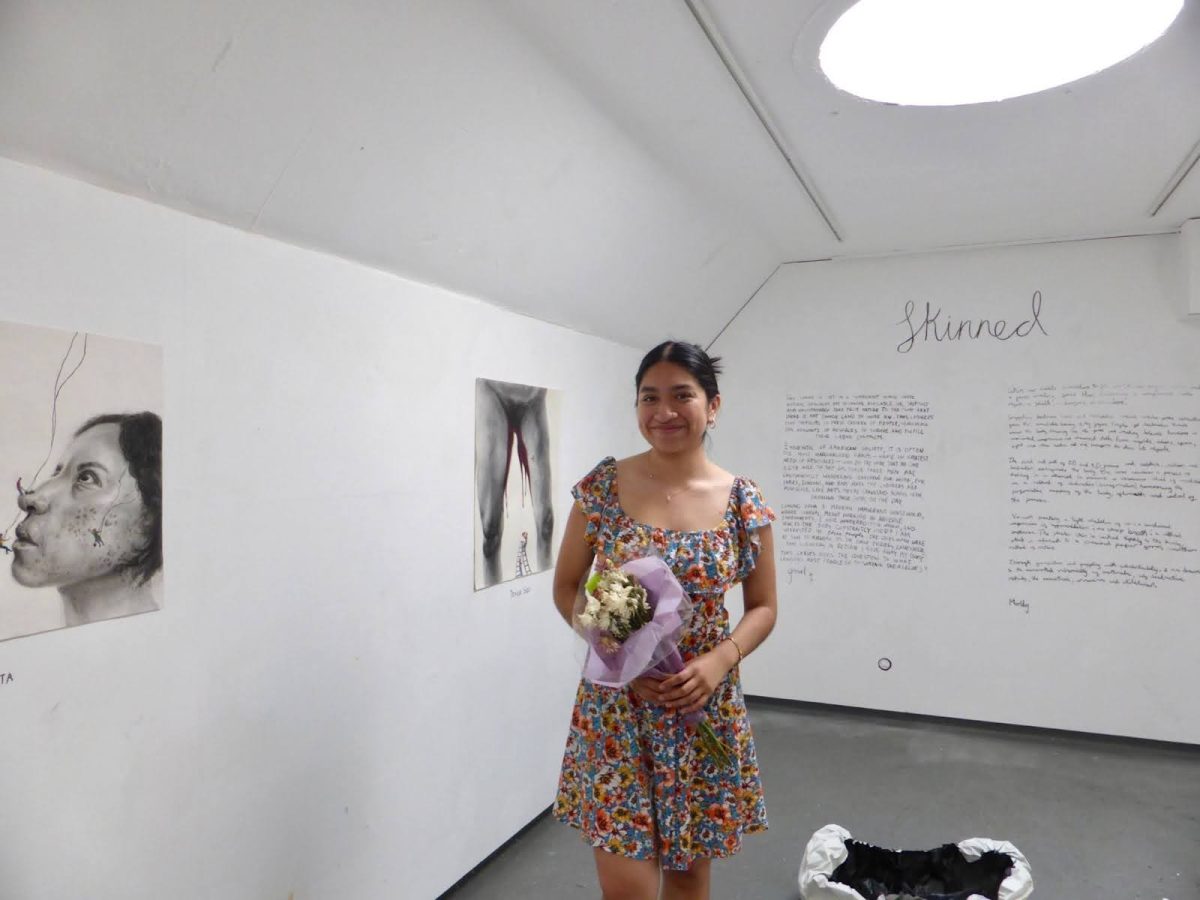
Parasite (2019) explores class dynamics, reliance and disposable labor in an intricately crafted narrative subverting the commercial film sector.
Parasite is seemingly familiar. On its surface lays the veneer of a thriller entrenched with social commentary and dark comedy. Halfway through Bong Joon-ho’s widely recognized and Palme d’Or winning masterpiece, these hints at a decipherable genre or even a collage of their fragments, break down further, with the shards representing conventions of film genre, homages to past film and political discourse. Perhaps this is what makes Parasite such a memorable and, quite candidly, singular viewing experience. The internationally established Korean director is known for his previous films alluding to both Korean-specific and global political issues (Okja, The Host). There’s an intangible quality to Parasite that simultaneously presents the nuances of class dynamics in contemporary Korean society, alluding to its discontents, roots and further ensuing problems, while crafting a narrative that is universally appreciated, as exemplified by its box office success and Academy Award consideration buzz.
I saw Parasite for the second time at Images with Visiting Assistant Professor of American Studies Anthony Y. Kim. This time, I began to unravel the socio-political undertones more fruitfully. Having seen and discussed Burning, a social thriller directed by Lee Chang-dong adapted from Haruki Murakami’s “Barn Burning,” with Professor Kim last year, I had a more general base knowledge going into Parasite than I otherwise would have.
Despite their symmetry in containing Korean social commentaries, Burning and Parasite are wildly different especially with regard to audiences. During Burning, the theater was scarcely inhabited, whereas for Parasite, it was nearly full. “One thing I’ve been really wrestling with is: What is it about this specific film that is garnering this kind of attention?” Kim said. “Why are they talking about this South Korean film as the one that’s going to win an Academy Award?”
The film begins by introducing us to the Kim family. We’re immediately placed into their world — characterized by their ‘semi-basement’ home, crumbling tile bathroom and lack of Wi-Fi. The brilliant son Ki-woo, precluded from college education, is sprung into the lives of the wealthy, overly consuming, Park family after his friend recommends him for an English tutoring position. Ki-woo (“Kevin”) immediately devises a plan to oust the Parks’ service workers and to replace them with the labor of his sister and parents under disguised relations. Ki-woo’s sister Ki-jung successfully assumes the role of the satirical, ironically unqualified art psychologist and tutor (“Jung Ziso”), the mother Kim Chung-sook replaces the former housemaid (“Hyae Jin Chang”) and the father Ki-taek (“Mr. Kim”) becomes the Parks’ driver.
There’s a redeeming and euphoric evocation from this scamming and class subversion, as Professor Kim explained. “It’s also connected to all the performativity of living under a system of capitalism like ‘fake it till you make it’ because the system is already broken,” said Professor Kim, “but someone is going to have to pay the price eventually.
Of course, someone eventually does. While it’s best to go into Parasite with limited knowledge of the narrative’s inversions, it’s worth mentioning that around halfway through the film, all hell breaks loose, quite literally. The satirical commentary on class relations spirals into the specific repercussions of the labor market, the consequences of the scam and the possibilities of what literally lays underneath the surface of the well-manicured lives of the Parks.
In fact, the Parks’ modernist playground is a place of utmost symbolism, divisiveness and conflict in Parasite. The space is adorned by rectilinear forms, fantastically large floor-to-ceiling windows and gently rising staircases that provide the perfect set design for a tracking shot or the slow reveal of a character ascending or descending upon them. It feels more like a seminal work of Frank Lloyd Wright or Philip Johnson than a set design. It represents the dream of owning a grand home – something that is all too difficult and often impossible for the impoverished lower classes of Korean society.
“Bong Joon-ho has been talking about how one big inspiration, cinematic inspiration for this film, is an earlier South Korean film Housemaid from 1960 (directed by Kim Ki Young)… That’s also a film where it’s very much about the house and the dream of a house and it’s made in 1960 so it’s about a family that’s relatively middle class,” said Kim. “So, part of this dream of ascending social class is manifested through the building of this new house. In that film, the house also becomes a site of horror through the entrance of this domestic worker or the titular housemaid who wreaks havoc on this domestic space and wreaks havoc on the family.”
There’s a linkage between Housemaid and Parasite in their plots’ contents, however, the switch between class mobility and horror and the supervening complexity of influences on the Parks and Kims seems to be an even more fascinating lens to view the film through. Regarding exterior influences, Housemaid and Parasite released at times of U.S. influences through militaristic imperialism for the former, as initiated in the 1940s and 50s in the throes of the Korean War and Cold War, and the opening of the Korean market for flow between Western culture and Korean culture which has been recently more noticeable in the U.S. Professor Kim thinks this current, particularly of Korean culture into U.S. sentiments, may be responsible for Parasite’s commercial success in U.S. cinemas.
“I definitely think Parasite‘s critical and commercial success, especially in the U.S., is made possible by the decades-long exporting of Korean popular culture (K-pop, K-dramas, K-movies, Kskincare) through the Korean Wave (or Hallyu),” said Kim. “Hallyu has thus established South Korea as a global brand, a major player on the world stage.” Even so, Parasite also contains remnants of American influence. It’s not merely a Korean export, but more an amalgamation of implicitly Western ideas of language and predominantly Korean political and ideological issues.
Odd Americanophilic obsessions float to the surface of Parasite as reflective of broader upper class sentiments. The Parks’ fetishization of U.S. racial hierarchies, exemplified by their son’s problematic fascination with Native Americans, and their frequent usage of English are emblematic of their privileged position, exposing how embracing U.S. culture is maybe indicative of class status in Korean society – certainly residual substance from the U.S.’s history of settler-colonialism, imperialism and militarization.
A newfound norm of a global free market pushed by Western nations and, undoubtedly, American cultural exports are evident in South Korea’s cinemas. Kim explained a specific quota in place in South Korean film houses following our conversation. “It was introduced in 1967 as a form of economic protection against foreign competitors (namely Hollywood). Originally, South Korean movie theaters had to show domestic films for 146 days of the calendar year. In 2006, as part of the terms of a free trade agreement with the U.S., this number was reduced by half, to 73.
The screen quota has been subject to dispute and even protests over the years,” said Kim. “On one hand, some want to abolish quotas altogether to make South Korea more competitive with/to foreign markets while arguing, perhaps somewhat naively, that this would also push the South Korean film industry to produce better movies. On the other hand, those who are in favor of quotas (either their maintenance or strengthening) argue that their elimination would place locally produced and especially independent films at a distinct disadvantage, especially when one considers how the Hollywood blockbuster Avengers: Endgame rendered even the existing quota as virtually meaningless by monopolizing the South Korean box office and became the top grossing foreign film of all time.”
How does the inextricable tie between the importation of American films into Korean culture and vice-versa, Parasite into American culture make sense of the success of Parasite in global markets. Bong’s implementation of social commentary and nuanced political dialogue serves as an exploitation and reinvention of the commerical medium which can be often be constricting or repressive of certain voices.
Bong once again problematizes commentary on class dynamics in Parasite. He raises questions about our positionality to privilege and complicates the ways in which we think about class and social status. “It’s not just that the wealthy ones are the bad ones and the poor ones are the good ones,” said Kim, “but rather even amongst the poor there’s this competitiveness because of the scarcity of resources, of housing because South Korea has become increasingly more and more difficult for anyone to find a house, get an education, do all those things that are part of this fantasy of ‘making it.’”







